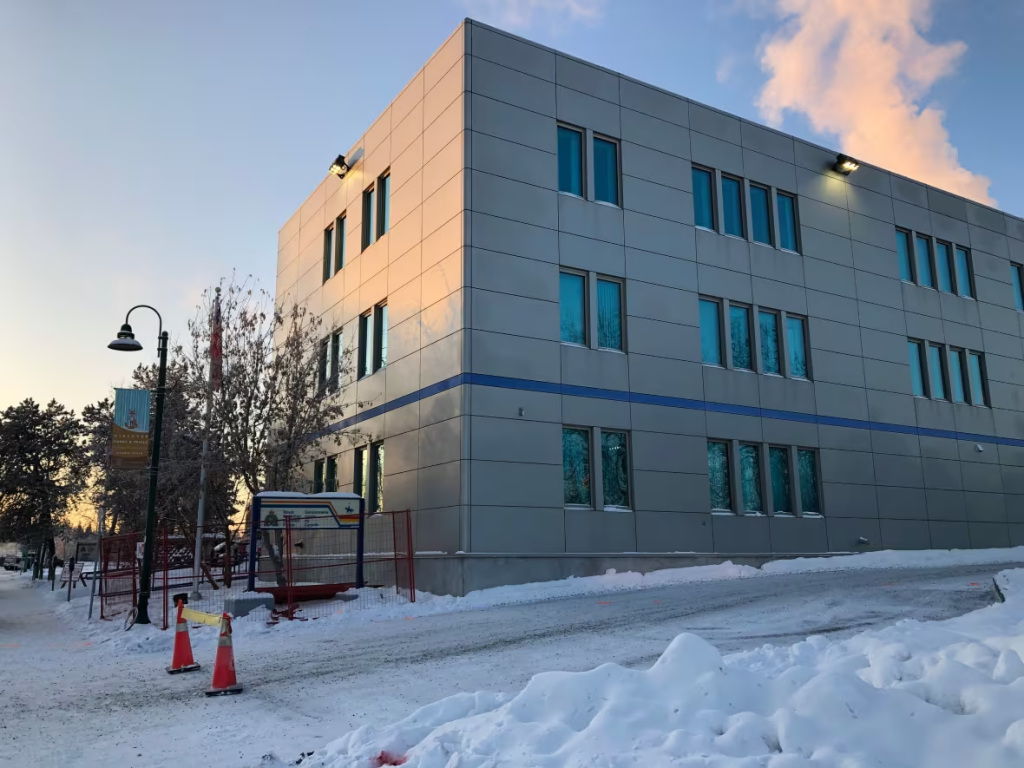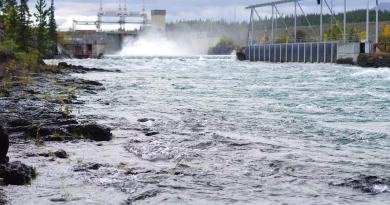Drug trafficking, gun violence up in Yellowknife, say RCMP

Staff Sgt. Byron Donovan says police don’t know how illegal handguns are getting into the city
With two shootings in the last month in Yellowknife less than a week apart, Yellowknife RCMP say the incidents signal an increase in gun violence in the city.
Two people died in one of the shootings; in the other, someone was injured. Police say both were targeted incidents and the second was related to the drug trade.
Staff Sgt. Byron Donovan spoke to Trailbreaker host Hilary Bird about the recent shootings and what’s being done to tackle an increase in drugs and guns being brought to the territory from the south.
This conversation has been edited for length and clarity.
Do the numbers say we’re seeing an increase in gun violence in the city?
I think the numbers are clear, especially in the first three months of this year in compared to last year around the same time period. We have seen an increase in gun violence in Yellowknife with the two recent shootings.
Why do you think that is?
It’s [linked to] the drug trade, and people that are involved in the illicit drug trade that are coming up from the south. We’re seeing in increase of handguns and violence associated to the illicit drug trade.
The guns that we typically see used in this sort of violence, are they typically illegal guns?
I can’t speak exactly to the ones involved in this investigation, because I don’t know what the answer is to that. However, they’re not the guns that people use to go hunting. Often times, we’re seeing handguns. When we are seizing them, their serial numbers might be erased, which leads us to believe that they’re being obtained illegally. We don’t know how they’re getting into the city, unfortunately.
Do we know what the situation is on the ground in Yellowknife when it comes to the drug trade?
There’s no specifics on a gang, per se. There are pockets of people that come up who are organized and are coming to Yellowknife and they are involved in the illicit drug trade. Are they working in a group? I would say it’s safe to say yes.

In the two recent shootings, police have said the violence was targeted. Can you walk us through what that means?
It means in a sense that people that are involved are in the drug trade — whether as someone who is a dealer themself or working as people that are bringing these drugs in.
In these incidents, they both happened in residential areas. What would you say to people in the city who are maybe scared or don’t feel safe at this time?
My feedback to the people that are feeling unsafe currently is that we’re doing everything that we can to investigate these shootings to keep the community safe. One of the things we’re doing is increasing our presence. When our members are out and patrolling, we equip them with computers inside their cars, so they’re not having to return to the office to write up their reports. They can sit in these residential areas and they can have a higher presence and hopefully offer that sense of safety by seeing a police car out there.
There has been an increase in gun violence. How does that change the way that you operate responding to calls?
I think with any call, we have to be aware of our situation because every call can be different. It doesn’t matter if we’ve gone to the same type of call 100 times, the 101st time can be something that ends up being violent. Every call, we deal with safety and safety concerns when addressing them and attending them.
You mentioned the illegal drug trade. In recent years, are you seeing new drugs coming to the city?
In Yellowknife specifically, we’re seeing and seizing crack cocaine. We’re also seeing fentanyl as well, and it’s been reported in other communities. That’s a little different from when I was first in the territory, back in 2011 I think, to now.
You mentioned an increase in visibility, but what else is the RCMP doing to deal with this growing violence?
We’re making sure that our community partners know we’re out there. We’re patrolling. We’re doing more media releases when it comes to our drug investigations, and that’s just letting our community know that we are trying to target the illicit drug trade. Hopefully by naming some people, we’re able to get some support from the community as well to know that they can call the police through the regular means. They can also do a Crime Stoppers tip if they believe that something is happening within their communities.

Are you doing anything specifically when it comes to the increase in illegal guns?
There’s nothing specific. We don’t have a team that’s dedicated just to investigating illegal gun trafficking or possession of firearms. It just falls into any of our normal investigations.
Given the current situation, the increase and those two incidents that we saw, how are your staffing levels as a detachment?
I think like any group or organization right now, whether it be in the policing world or outside of the policing world, our levels aren’t where we would like them to be. But that being said, we are doing great when it comes to recruiting. Both through the Northwest Territories, having people go down to our training depot in Regina, but also people are interested in coming up.
Do you think you have enough staff to meet the demands of the incidents you’re seeing here?
Like any group, I would love to have more staff. But I think right now, we are working with what we have and doing that best we can to allocate those resources to the community or to specific investigations when required.
With files from Hilary Bird
Related stories from around the North:
Related stories from around the North:
Canada:Q+A | Head of Yukon RCMP on additions of new staff to local force, CBC News
Finland: Police response times up to an hour slower in Arctic Finland, Yle News
United States: Lack of village police leads to hiring cops with criminal records in Alaska: Anchorage Daily News, Alaska Public Media



